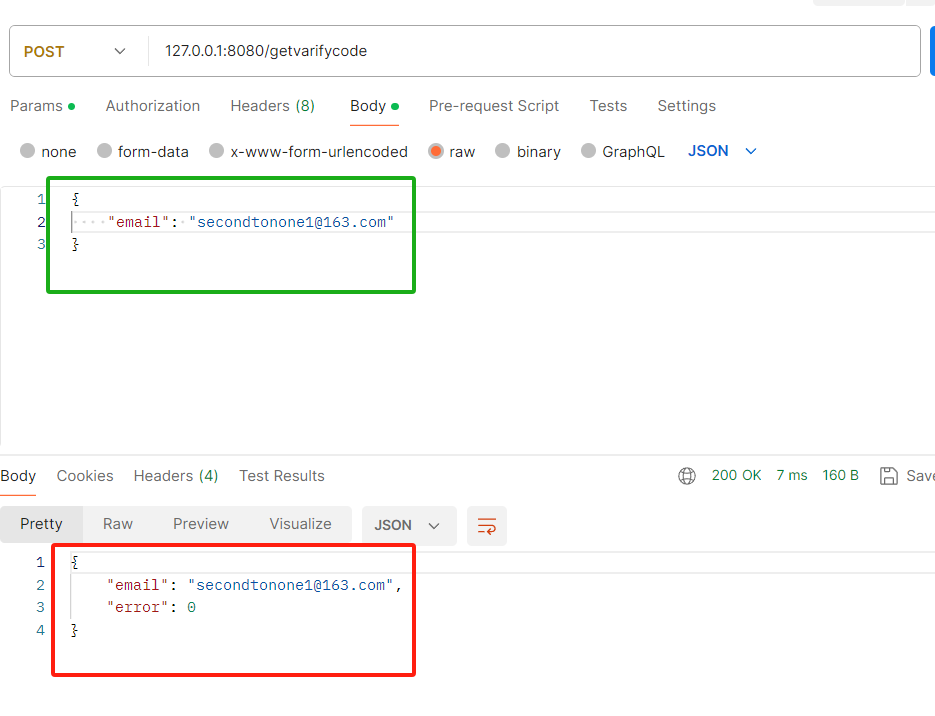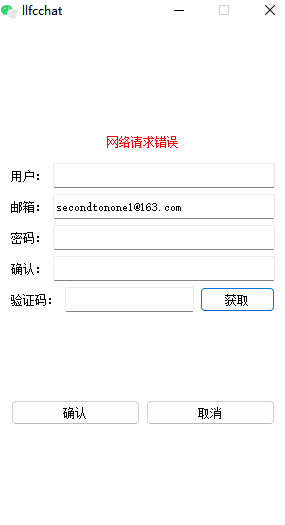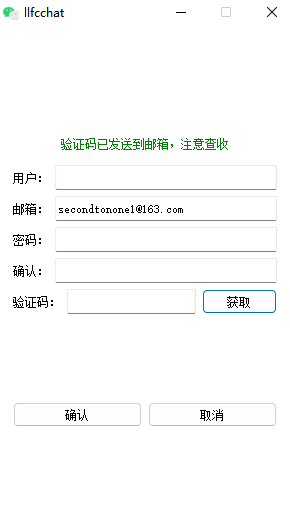注册Post请求
我们实现RegPost函数
void LogicSystem::RegPost(std::string url, HttpHandler handler) {
_post_handlers.insert(make_pair(url, handler));
}
在const.h中添加ErrorCodes定义并且包含JsonCpp相关的头文件
#include <json/json.h>
#include <json/value.h>
#include <json/reader.h>
enum ErrorCodes {
Success = 0,
Error_Json = 1001, //Json解析错误
RPCFailed = 1002, //RPC请求错误
};
然后在LogicSystem的构造函数里添加获取验证码的处理逻辑,
RegPost("/get_varifycode", [](std::shared_ptr<HttpConnection> connection) {
auto body_str = boost::beast::buffers_to_string(connection->_request.body().data());
std::cout << "receive body is " << body_str << std::endl;
connection->_response.set(http::field::content_type, "text/json");
Json::Value root;
Json::Reader reader;
Json::Value src_root;
bool parse_success = reader.parse(body_str, src_root);
if (!parse_success) {
std::cout << "Failed to parse JSON data!" << std::endl;
root["error"] = ErrorCodes::Error_Json;
std::string jsonstr = root.toStyledString();
beast::ostream(connection->_response.body()) << jsonstr;
return true;
}
auto email = src_root["email"].asString();
cout << "email is " << email << endl;
root["error"] = 0;
root["email"] = src_root["email"];
std::string jsonstr = root.toStyledString();
beast::ostream(connection->_response.body()) << jsonstr;
return true;
});
然后我们在LogicSystem中添加Post请求的处理
bool LogicSystem::HandlePost(std::string path, std::shared_ptr<HttpConnection> con) {
if (_post_handlers.find(path) == _post_handlers.end()) {
return false;
}
_post_handlers[path](con);
return true;
}
在HttpConnection的HandleReq中添加post请求处理
void HttpConnection::HandleReq() {
//省略...
if (_request.method() == http::verb::post) {
bool success = LogicSystem::GetInstance()->HandlePost(_request.target(), shared_from_this());
if (!success) {
_response.result(http::status::not_found);
_response.set(http::field::content_type, "text/plain");
beast::ostream(_response.body()) << "url not found\r\n";
WriteResponse();
return;
}
_response.result(http::status::ok);
_response.set(http::field::server, "GateServer");
WriteResponse();
return;
}
}
然后我们启动服务器,然后下载postman,大家可以去官网下载,如果速度慢可以去我的网盘下载 https://pan.baidu.com/s/1DBIf7Y6G3v0XYfW5LyDKMg?pwd=kjxz
提取码:kjxz
打开postman,将请求修改为post
绿色的为post请求的json参数,红色的为服务器返回的json数据包。
我们看服务器打印的日志
客户端增加post逻辑
我们之前在客户端实现了httpmgr的post请求,在点击获取验证码的槽函数里添加发送http的post请求即可
void RegisterDialog::on_get_code_clicked()
{
//验证邮箱的地址正则表达式
auto email = ui->email_edit->text();
// 邮箱地址的正则表达式
QRegularExpression regex(R"((\w+)(\.|_)?(\w*)@(\w+)(\.(\w+))+)");
bool match = regex.match(email).hasMatch(); // 执行正则表达式匹配
if(match){
//发送http请求获取验证码
QJsonObject json_obj;
json_obj["email"] = email;
HttpMgr::GetInstance()->PostHttpReq(QUrl("http://localhost:8080/get_varifycode"),
json_obj, ReqId::ID_GET_VARIFY_CODE,Modules::REGISTERMOD);
}else{
//提示邮箱不正确
showTip(tr("邮箱地址不正确"),false);
}
}
当服务器不启动,客户端输入邮箱,点击获取验证码,客户端会收到网络连接失败的提示
启动服务器后,再次获取验证码,就显示正确提示了,而且客户端输出了服务器回传的邮箱地址email is "secondtonone1@163.com",界面也刷新为正确显示
客户端配置管理
我们发现客户端代码中很多参数都是写死的,最好通过配置文件管理,我们在代码所在目录中新建一个config.ini文件, 内部添加配置
[GateServer]
host=localhost
port=8080
接着右键项目添加现有文件config.ini即可加入项目中。
因为我们的程序最终会输出的bin目录,所以在pro中添加拷贝脚本将配置也拷贝到bin目录
win32:CONFIG(release, debug | release)
{
#指定要拷贝的文件目录为工程目录下release目录下的所有dll、lib文件,例如工程目录在D:\QT\Test
#PWD就为D:/QT/Test,DllFile = D:/QT/Test/release/*.dll
TargetConfig = $${PWD}/config.ini
#将输入目录中的"/"替换为"\"
TargetConfig = $$replace(TargetConfig, /, \\)
#将输出目录中的"/"替换为"\"
OutputDir = $${OUT_PWD}/$${DESTDIR}
OutputDir = $$replace(OutputDir, /, \\)
//执行copy命令
QMAKE_POST_LINK += copy /Y \"$$TargetConfig\" \"$$OutputDir\"
}
global.h中添加声明
extern QString gate_url_prefix;
在cpp中添加定义
QString gate_url_prefix = "";
在main函数中添加解析配置的逻辑
// 获取当前应用程序的路径
QString app_path = QCoreApplication::applicationDirPath();
// 拼接文件名
QString fileName = "config.ini";
QString config_path = QDir::toNativeSeparators(app_path +
QDir::separator() + fileName);
QSettings settings(config_path, QSettings::IniFormat);
QString gate_host = settings.value("GateServer/host").toString();
QString gate_port = settings.value("GateServer/port").toString();
gate_url_prefix = "http://"+gate_host+":"+gate_port;
将RegisterDialog发送post请求修改为
HttpMgr::GetInstance()->PostHttpReq(QUrl(gate_url_prefix+"/get_varifycode"),
json_obj, ReqId::ID_GET_VARIFY_CODE,Modules::REGISTERMOD);
再次测试仍旧可以收到服务器回馈的http包。
这么做的好处就是客户端增加了配置,而且以后修改参数也方便。






